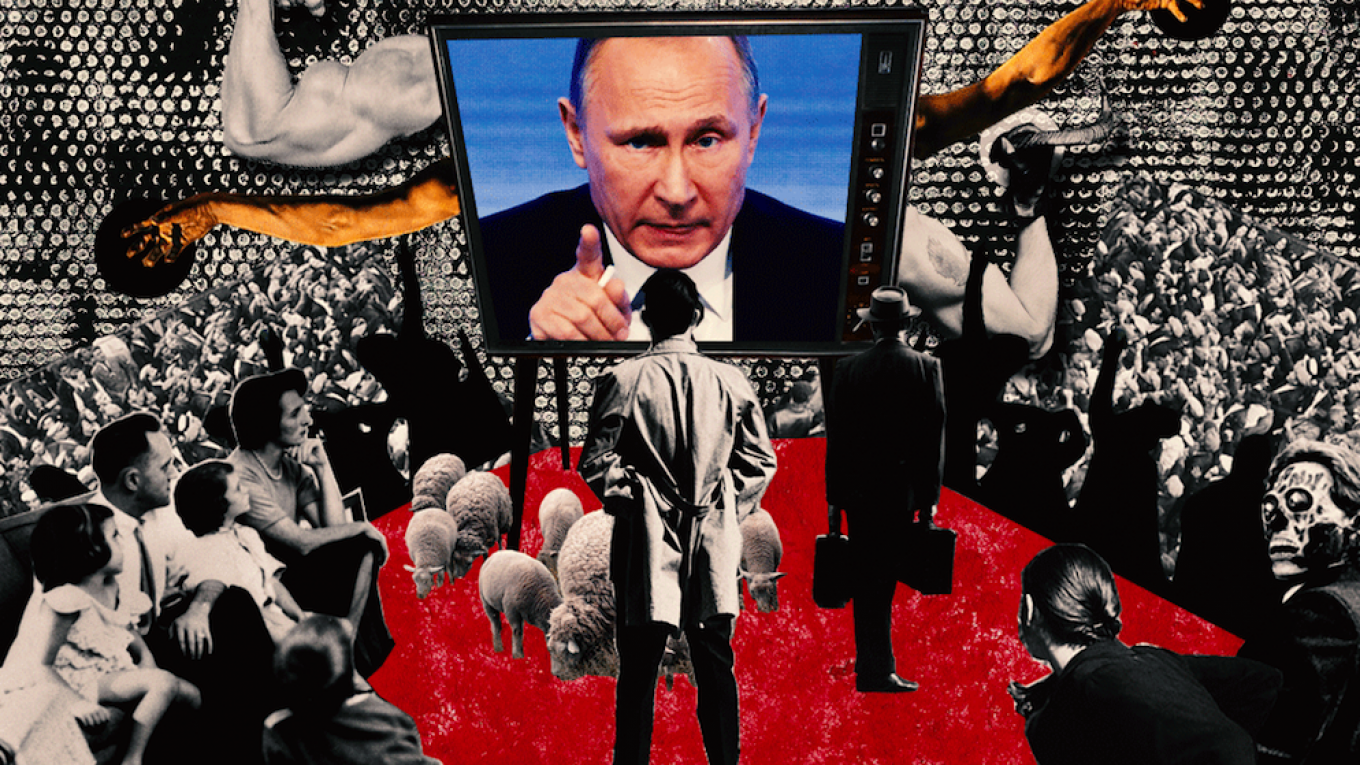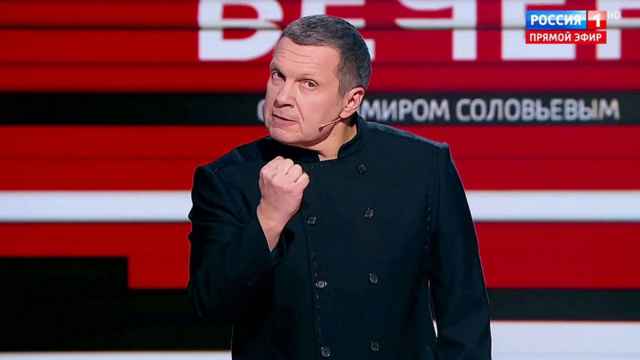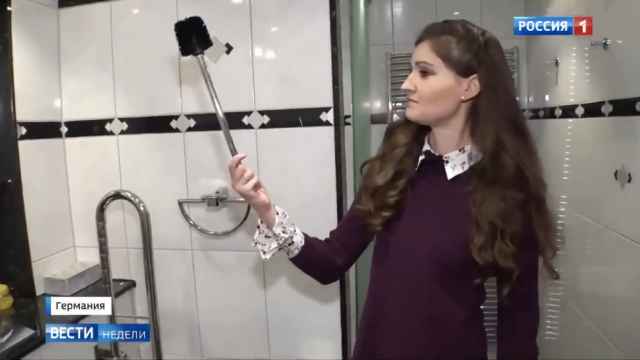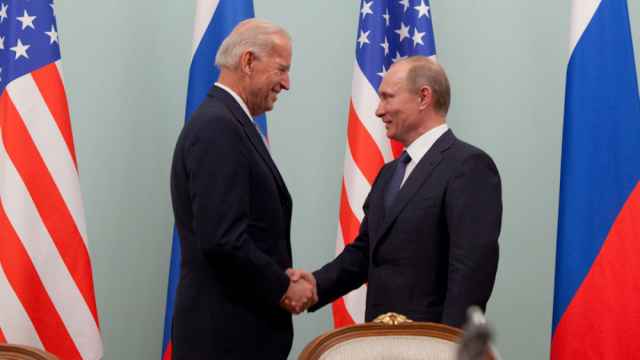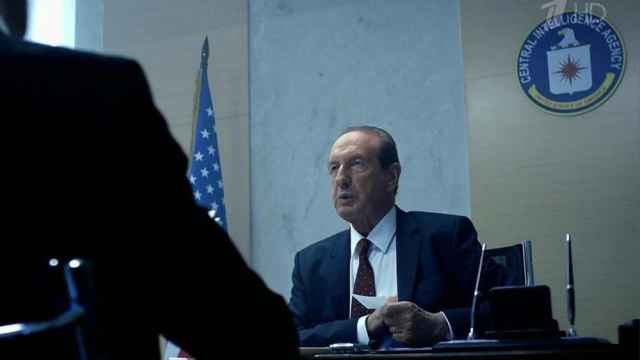Russia’s most high-profile presidential contenders are staging media performances this week, in what political analysts are calling a warm-up for the campaign season before presidential elections next March.
On Thursday, opposition leader Alexei Navalny hosted Igor Girkin, or “Strelkov,” a former leader of pro-Russian separatists in eastern Ukraine, in a live debate on his YouTube channel.
A day later, on Friday, President Vladimir Putin held a Q&A with students in Sochi, broadcast live on the Kremlin-sympathetic NTV channel.
The appearances are a sign that the campaigning season has already begun months before it will officially kick off in December.
“It is a politically hot summer in Moscow, despite the weather,” political analyst Gleb Pavlovsky told The Moscow Times. “I think it will inevitably culminate in a serious standoff.”
“We’re in a campaign period and an already hot one at that,” Yekaterina Schulmann, a political scientist, added. “There can be no summer vacations now. At least, the political class is not resting and not sleeping.”
One of the reasons for the early start, Pavlovsky suggested, is that both candidates have something to make up for.
Putin backed a controversial housing demolition scheme in Moscow (whose mayor, incidentally, also held a televized Q&A on the state-owned TV Tsentr on Thursday). And Navalny is struggling to expand his loyal, but small, support base among opposition-minded voters, Pavlovsky explained.
“Right now, both prominent front men are making efforts to seize control,” he says.
Battle of the Mediums
The performances attest to both candidates’ media savviness, media researcher Vasily Gatov told The Moscow Times. A live performance will be cited by media outlets for weeks, he says — particularly during the summer’s slow news cycle.
“A politician spends two to three hours at a town hall meeting,” Gatov says, “but there are enough quotes there for a month.”
Both Putin and Navalny are well-versed in media performances. Since 2001, the Russian president has held 15 Direct Line conferences. Every year, Russians are encouraged to send in their questions, which are then answered live on air.
Television is still the most influential platform in Russian political campaigns. It is how more than 86 percent of Russians get their news, according to a study conducted by the independent pollster Levada Center in 2016.
“There is no medium as large-scale as television in our country. Nothing can compare to it,” Levada Center’s Alexei Levinson told The Moscow Times in a phone interview. “Naturally, candidates who want to capture a large mass of potential voters turn to television.”
It’s not surprising then that Putin makes daily appearances on major television channels. The communication style many top Russian politicians adopt is reminiscent of Soviet times, political analyst Yekaterina Schulmann told The Moscow Times.
“Like then, people tune in to television not for information or news, but to be told what is on the authorities’ minds,” she says.
Digital Putin
The strategy, however, might be losing its public sway, analysts told The Moscow Times.
“It’s a one-man show,” Pavlovsky says of Putin’s Direct Line, “and this doesn’t mesh with the era of social networks.”
Meanwhile, without access to state television channels, Navalny has turned to other platforms to reach his audience.
He appears regularly on his YouTube channel, which currently has 1.3 million subscribers and airs daily morning “news shows.”
The strategy appears to be inspiring a new generation into political action.
Young Russians were among the most visible at anti-corruption protests organized by Navalny in March this year, and images of teenagers being forcefully detained by police flooded social media.
The threat this poses to the Kremlin is limited, however. It is unlikely Navalny will be allowed to run for president, due to his criminal convictions for charges seen as politically motivated. Besides, Putin still has a much larger support base.
But capturing young Russians’ attention will still be crucial for the Kremlin. A large turnout among the youth would legitimize Putin’s reelection next year. “‘Youth’ is synonymous with ‘progress,’” Schulmann says.
With his unexciting appearances on state channels, however, Putin’s persona has little appeal for young Russians. The decision to give him a show with children in Sochi could be an attempt to make him appear lively and less intimidating.
“The Direct Line [on June 15] was rather boring and it seems that this worried Putin’s political strategists,” Schulmann says, adding that Friday’s show in Sochi may have been “compensation for that dull performance we saw earlier.”
For the moment, it is unlikely Putin will venture too far beyond already tried and tested platforms.
“Putin knows the genre of television, and he feels more comfortable with it than in any potentially controversial and competitive medium,” says analyst Pavlovsky.
And while Russians still watch Putin’s dry appearances, now it is mostly out of habit, independent political analyst Dmitry Oreshkin told The Moscow Times.
“Of course people watch them,” Oreshkin says of Putin’s five-hour Direct Lines. “But with just one eye.”
“Putin is saying something and, meanwhile, the woman of the house is cutting onions or potatoes," he adds.
We'll be covering Putin's Q&A with children live here.
A Message from The Moscow Times:
Dear readers,
We are facing unprecedented challenges. Russia's Prosecutor General's Office has designated The Moscow Times as an "undesirable" organization, criminalizing our work and putting our staff at risk of prosecution. This follows our earlier unjust labeling as a "foreign agent."
These actions are direct attempts to silence independent journalism in Russia. The authorities claim our work "discredits the decisions of the Russian leadership." We see things differently: we strive to provide accurate, unbiased reporting on Russia.
We, the journalists of The Moscow Times, refuse to be silenced. But to continue our work, we need your help.
Your support, no matter how small, makes a world of difference. If you can, please support us monthly starting from just $2. It's quick to set up, and every contribution makes a significant impact.
By supporting The Moscow Times, you're defending open, independent journalism in the face of repression. Thank you for standing with us.
Remind me later.


